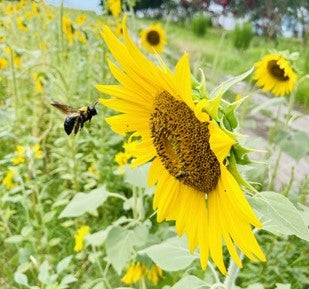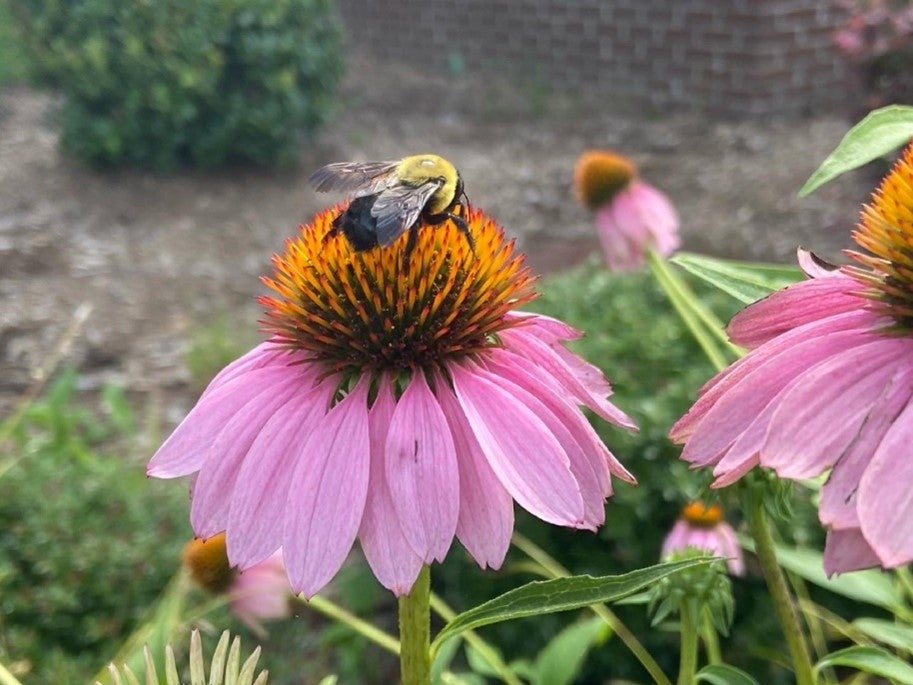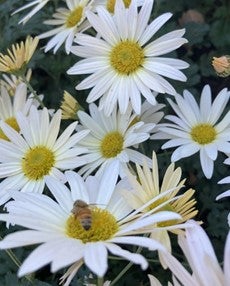Protect Pollinators this Spring
There are many positive experiences that accompany the transition from Winter to Spring in North Carolina. From the warming of the weather, to the bloom of fresh flowers, there is no shortage of beauty.

But for some, Springtime means the return of the seasonal allergies stemming from the annual pollen flow. The types of pollen that tend to aggravate allergies the most are tree, grass, and ragweed pollens. It is possible to track all of these via weather.com, which has been linked below. In North Carolina, the most common type of pollen is produced by pine trees. The yellow coating that covers every exterior surface in the Spring can be blamed on pine, though that is just one variety present in an extremely large mixture.
The pollen flow may seem like a nuisance, but it is actually an extremely important element of the global ecosystem. The process of pollination enables plant life to reproduce and grow, as well as providing vital pollinator populations with the resources they need to flourish. When the pollen is flowing, honeybees and other pollinators are constantly out collecting nectar and pollen in order to ensure their survival through the next year. The process of pollination occurs when pollen from one flowering plant is transferred to another. The most common ways for this to occur are through insects such as bees, butterflies, and beetles, birds, and the wind.

If it were not for the existence of pollen, the earth as it is today would not exist. The majority of plants used for human consumption are pollinated by insects, which is why it is essential that pollinators are consistently supported. The pollen flow, and the billions of insects that serve as pollinators, are a keystone aspect of the earth’s ecosystem. Without the pollination process, life would quickly become impossible to sustain. Despite their importance, there has been a decrease in pollinator populations across the world, largely due to human development.

There are many ways to contribute to the growth of local pollinator populations. Examples of this include planting native pollinator-friendly plants, the establishment of pollinator watering stations and homes, and the spread of educational information. If one is uncertain about where to start, reaching out to local organizations is an extremely effective way to be involved in the sustainability scene. Examples of such organizations in Greenville include Love a Sea Turtle, the Tar River Beekeeping Association, and SustainabiliBees of East Carolina University.